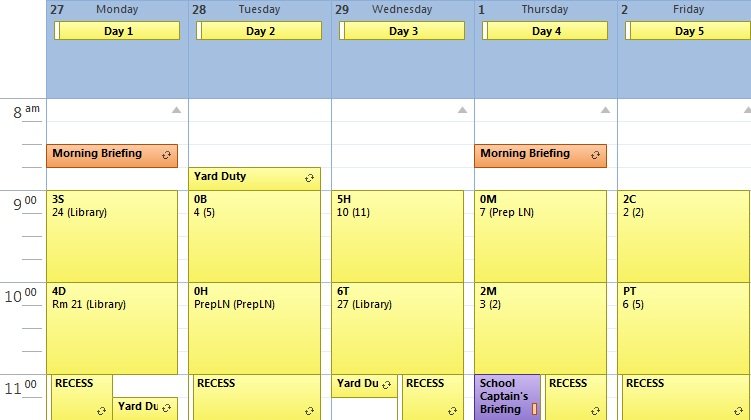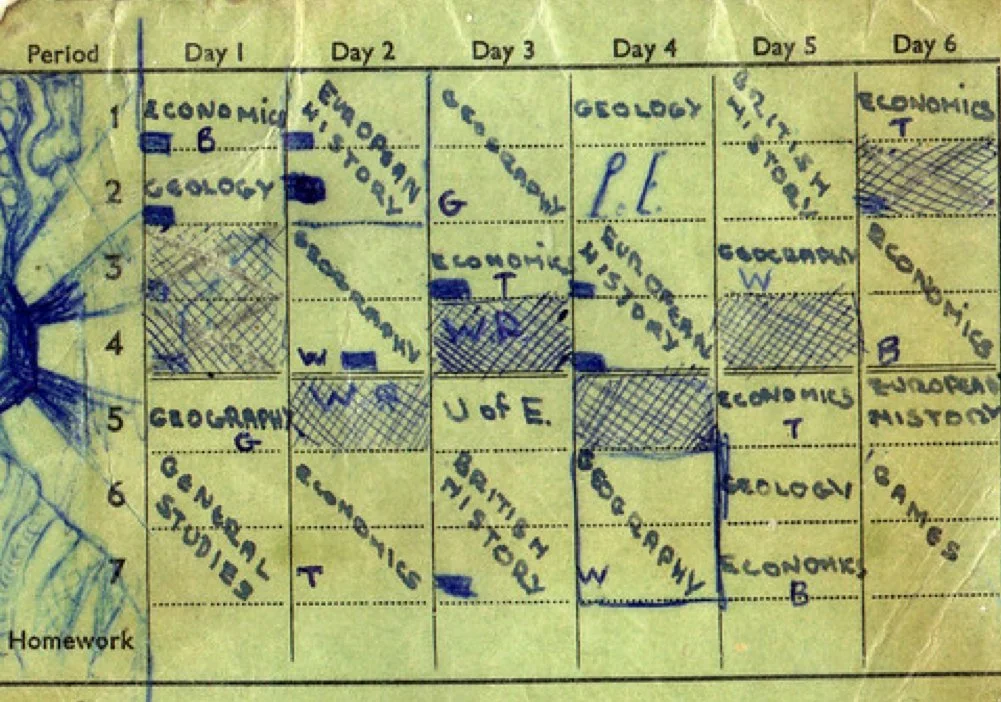Blog Posts
How will you make the world a better place?
Close friends and long-time readers of this blog will know that Student Voice and Student Leadership is a passion of mine.
Most schools have some form of student body; be it a student representative council, student leadership council, a junior school council, a student congress, or student voice – the names for these organizations are varied, but ultimately, there is a group that represents students within the school.
But… Why is such a having a student council important? And what sort of things should we be working on? I mean, they raise money and stuff, but how can we move to that next level?
Restart
I had noticed a few posts recently in my Twitter feed from respected and valued people in my PLN (@ccoffa,@medg56 and @hbailie) who in an attempt to revitalise their blogging had signed up for the #youredustory challenge.
It was interesting to read the reasons why each of them had signed up for the challenge. In considering whether or not to sign up I thought I should first reflect on why I had neglected my own blog for so long.
So, why don't I blog?
11 questions
In a recent blog post, Steve Brophy was challenged to respond to a series of questions and then set the following challenge to me and other members of my PLN. Here are my responses.
Tips for the ICT Co-ordinator
2014 sees me change schools again. I will once again be taking on the role of ICT Co-ordinator as a Leading Teacher. This, combined with the recent podcast from The Ed Tech Crew podcast that focused on tips for new ICT Co-ordinators has made me reflect on my own experience as ICT Co-ordinator at my current school and look at what worked well and what I would do differently next time.
I moved into an ICT Co-ordinator role after a few years of teaching and managed to change this role into a Leading Teacher role. The podcast did make me think about the fact the teacher in question is a graduate teacher and ask the question "Can a graduate teacher be an effective ICT co-ordinator?".
I think back to my first year of teaching and there sure was a lot to cope with and get my head around in my own classroom. (Lois touched on this in some of her comments throughout the podcast). I did wonder then what kind of "ICT co-ordinator" this school may be they after? If they want someone who can "fix problems" and has technical knowledge then yes, I am sure that a graduate teacher would be capable of this. But without experience in the classroom, is the pedagogy going to be there? (I can see this being a separate post altogether!)
So, as I reflect on my experience as ICT Co-ordinator and consider my actions as I move into my role, here is my advice to new ICT Co-ordinators.
Putting the "P" into my PLN
Thanks to a tweet from Andrew Williamson and Mel Cashen, who are currently working as coaches for the Teaching and Learning in the 21st Century course being run by DEECD, I was posed a series of reflective questions about how my thoughts around having a Personal Learning Network [PLN].
This lead to me creating and uploading my first YouTube video that I filmed using my iPad and edited with iMovie and Keynote.
Lollipop moments
School holidays has been a great time to clean out and catch up on all of the blogs I have in my Google Reader.I stumbled across this TED Talk by Drew Dudley the other day through a post on Lifehack: Top 20 TED Talks that can improve your life.
Changing the face of professional learning
Several people within my PLN have written recently around the theme of Staff Professional Learning. (See works here by Margo and Edna) Their articles, combined with conversations at Tweet Ups and Teach Meets (and time to think over the holidays!) have led me to reflect on how I deliver professional learning within my school and changes I would like to implement.
SO, WHAT WILL PROFESSIONAL LEARNING LOOK LIKE ?
A reflection on 2012
With the madness that is a school at the end-of-year, Christmas, and celebrating a birthday, this post is a little later than I had hoped, however, it has given me the time to really reflect on the year that has past and what lies ahead.
2102 has been a hectic year both personally and professionally and it would be easy to forget what has been achieved. As I look forward to 2013 and think about the possibilities, I thought it wise to reflect on what has been achieved from the year just past.
Say Cheese!
In the last few weeks of term, we have been madly preparing community events like our Christmas Concert and Graduation. Naturally, parents, grandparents, aunts, uncles and other family members want to remember and capture these events that feature their children through photographs or home movies.
As teachers and as schools we are required to fill in countless permission forms these days for even the most basic of things; including taking students photographs and detailing where they will be published. Yet, here were our parents and students taking photos and videos without us and of other students without us having any idea where they would end up.
Reading the fine print
We've all done it.
You know, when you sign up to that new account or you download the latest iTunes update and you are presented with pages upon pages of legal speak about what you will and won't do and what rights you are signing over to the creator of the program that the majority of the time we just scroll to the bottom of the page and click on that "I accept the terms and conditions" tick box.
Whilst this may be fine for personal use, how does the 'fine print' impact on our use of Web 2.0 tools within our classrooms and our schools?
Facebook: Are you old enough?
As I've gone about researching information for the development of our school policies for eSmart, I was clicking my way through the eSmart Portal and the DEECD Learning OnLine site, I came across some details regarding Facebook. I was interested and wanted to know more as this has caused some issues in the past. As I work in a primary school, details regarding children under the age of 13 who have Facebook accounts took my interest.
Online Assemblies
Our school shares the site with the local secondary college. We also share on-site facilities such as the gymnasium. As both schools have grown rapidly in size quite quickly, this has meant that times where we can have exclusive use of the gym is limited. Given the size of our school population and the remaining facilities available, we did not have a space large enough to accommodate our school community. This lead to us investigating alternative methods of running our school assembly program and the introduction of broadcasting our assembly using web conferencing.
In the clouds...
As our school moves into implementing our co-teaching model, a reoccurring question has been around the topic of assessment and the sharing of information; in particular student assessment observations, assessment results, behaviour tracking and work programs. Many of our staff have access to iPads and are keen to use these as part of their teaching. Some are exploring the use of Google Docs, some are exploring the Ultranet and some are exploring other options. The question of privacy and security of information was raised with regards to access to information that is stored within 'the cloud'.
Timetable Challenge: Part 3
In earlier posts, I wrote about the challenges our school was facing as we continue to grow in size and deal with the issue of timetables and our response to this by moving towards a 7 day timetable. One of the issues I encounted was around the use of calendars (specifically Microsoft Outlook and the Ultranet) to schedule events and create my work program:


















